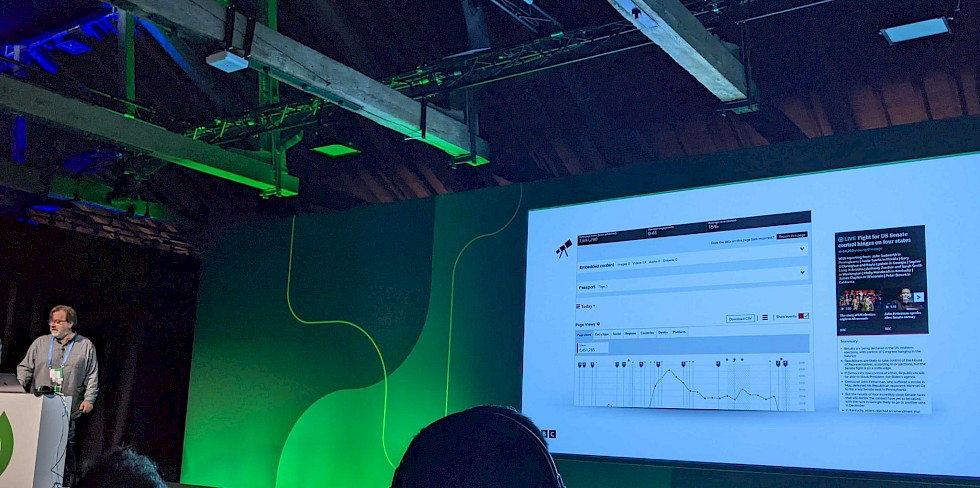From Hastings Degree Student to Shaping the BBC’s Digital Future

Steven Atherton's journey from a curious degree-level student in Hastings to a Senior Technical Architect at the BBC is a powerful example of how curiosity and dedication can open doors to exciting careers in technology.
Speaking to the College degree-level graduate, Steven, said, “I work as a Senior Technical Architect at the BBC. That’s a fancy way of saying that I help design the systems that power the BBC’s digital services.”
In his role, Steven collaborates with engineers, product teams, and partners to build reliable, large-scale digital systems that deliver content to millions every day. But it wasn’t always clear to him that this is where he’d end up.
When Steven studied Internet Computing at Hastings , he learned not just how to write code but how to understand the whole system - programming, networks, data architecture, and design.
“What I liked best was that it wasn’t just about writing code; it was also about figuring out how different parts of a system work together to solve problems in the real world. That’s what made me want to do it.”
Steven’s passion for problem-solving grew out of simple curiosity. “Curiosity has always pushed me. I didn’t have a background in technology; I just liked figuring things out.”
Starting as a software engineer, Steven steadily moved into senior roles and finally into architecture, where he could influence not just projects but how teams work and grow together. A key moment came in 2016 when Steven led the technology for the BBC’s digital election coverage.
“Joining the team that covered the BBC’s digital election coverage in 2016 was a big turning point for me. I was in charge of the technology, and it made me want to design systems that can grow, not just in terms of how many people use them, but also in how they change over time, how strong they are, and how they handle changes in the organisation. It showed me that good architecture isn’t just about the technical side; it’s also about people.”
Since then, Steven has worked on important projects, like helping thousands of editorial users transition to new publishing tools and guiding teams through the challenges of delivering content in an ever-changing digital world. But what he values most is supporting people.
“I enjoy mentoring engineers, helping them improve, and creating an environment where people feel safe and supported.”
Steven also wants to reassure aspiring tech professionals that self-doubt is normal. “What I’ve learned is one thing? Even people in high positions sometimes feel like they’re not good enough. It’s perfectly normal. What matters is being curious and asking questions. The only bad question is one that you don’t want to ask.”
His advice for those thinking about a career in technology is straightforward: “Don’t worry about knowing everything if you want to work in tech. Nobody does. Things change quickly in this field, so the best thing you can do is be willing to learn. Keep being curious. Make cool things. Learn from what you did wrong. That way of thinking will get you far.”
Steven also encourages students to seek real-world experience. “I was lucky to get a placement at the BBC while I was still in university. Working on something real made all the difference. If you can, take a placement or join a live project. It’s where you start to see how your work can really make a difference.”
Reflecting on the rapid changes technology is bringing, Steven highlights the enduring importance of human skills. “Technology is changing quickly right now. GenAI is everywhere, and it’s strong, but it also makes us think. It could change what entry-level jobs look like, but it can’t take the place of critical thinking, creativity, or the human side of problem-solving. That’s where people like you come in. Education gives you time to do that, think, ask questions, and design. Don’t take that for granted.”
Steven’s journey shows that you don’t need a clear map from the start — just curiosity and the courage to ask questions.
“Nearly everyone starts out without a clear map. You don’t have to. What matters is staying curious, asking questions, and doing work that matters to you. That’s how I got here. You could too.”
If you're interested in studying HE Computing, click here for more information.